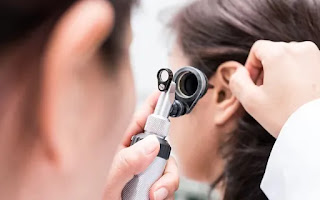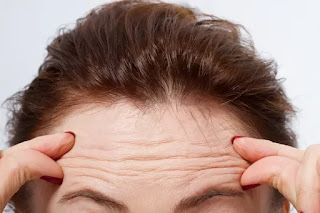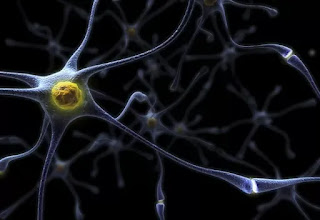Say what? Sudden hearing loss in a woman in China was unexpectedly selective.
Credit: Shutterstock
A woman in China suddenly developed an unusual condition that made her unable to hear male voices. And while that might seem enviable to some, the hearing loss could carry serious medical repercussions.
The woman, who is identified only by the surname Chen, visited a hospital after waking up one morning and being unable to hear her boyfriend's voice, Newsweek reported yesterday (Jan. 10). Chen also told doctors that the night before, she experienced ringing in her ears (a condition known as tinnitus) followed by vomiting.
At the hospital, Chen was treated by Dr. Lin Xiaoqing — a woman — who noted that while Chen was able to hear Xiaoqing's voice, she couldn't hear the voice of a nearby male patient "at all," according to Newsweek. Xiaoqing diagnosed Chen with reverse-slope hearing loss, a rare type of low-frequency hearing loss that likely impaired her ability to hear deep male voices.
Reverse-slope hearing loss (RSHL) gets its name from the shape it produces in visualizations of hearing tests — a slope that is a mirror image of the incline produced by high-frequency hearing loss, according to audiology clinic Audiology HEARS, P.C., in Cumming, Georgia. It affects an estimated 3,000 people in the U.S. and Canada — for every 12,000 people with hearing loss, only one individual has RSHL, the audiology clinic reported.
Humans detect sounds through the vibration of tiny hairs inside the ears, and over time (or because of genetics, injury or drug use) those hairs can become brittle and prone to breakage, said Dr. Michelle Kraskin, an audiologist and the assistant director of hearing and speech for Weill Cornell Medical Center at New York-Presbyterian Hospital in New York City. Kraskin wasn't involved in Chen's case.
The hairs that conduct high-frequency sounds are more delicate and because of this, they're the ones that tend to die first, Kraskin told Live Science. This explains why hearing loss more often affects our ability to hear higher-pitched sounds than lower-pitched ones, she said.
Loss of hearing of lower-pitched sounds (which is what Chen experienced) is also less common because the bass-processing portion of the cochlea — a snail-shaped structure deep in the inner ear — is very well protected, said Jackie Clark, a clinical professor with the School of Behavioral and Brain Sciences at the University of Texas at Dallas, who also wasn't involved with Chen's case.
Causes of the sudden onset of RSHL can include blood vessel problems or trauma, Clark told Live Science. Autoimmune disorders that affect the inner ear — which are thought to occur in about 1 percent of the U.S. population — may also be a cause of RSHL, Clark said. Indeed, autoimmune conditions in the inner ear can cause balance problems that may lead to vomiting — a symptom that Chen described to her doctor, Clark noted.
Though it might be amusing to imagine a world in which male voices are nonexistent, hearing loss is no laughing matter, Clark said. People who experience sudden and unexplained hearing loss should see a specialist as soon as possible.
The good news is that when RSHL is detected quickly, chances are good that the hearing loss can be reversed, Kraskin said.
"Most studies have shown that if you catch it within 48 hours, you have the best chance for recovery," she said. Treatment can involve high doses of steroids, but sometimes the condition goes away without any treatment whatsoever, she added.
In Chen's case, her doctor said that stress from working late and losing sleep caused Chen's low-frequency hearing decline, adding that rest would soon fully restore the woman's hearing, Newsweek reported.
Credit: Shutterstock
A woman in China suddenly developed an unusual condition that made her unable to hear male voices. And while that might seem enviable to some, the hearing loss could carry serious medical repercussions.
The woman, who is identified only by the surname Chen, visited a hospital after waking up one morning and being unable to hear her boyfriend's voice, Newsweek reported yesterday (Jan. 10). Chen also told doctors that the night before, she experienced ringing in her ears (a condition known as tinnitus) followed by vomiting.
At the hospital, Chen was treated by Dr. Lin Xiaoqing — a woman — who noted that while Chen was able to hear Xiaoqing's voice, she couldn't hear the voice of a nearby male patient "at all," according to Newsweek. Xiaoqing diagnosed Chen with reverse-slope hearing loss, a rare type of low-frequency hearing loss that likely impaired her ability to hear deep male voices.
Reverse-slope hearing loss (RSHL) gets its name from the shape it produces in visualizations of hearing tests — a slope that is a mirror image of the incline produced by high-frequency hearing loss, according to audiology clinic Audiology HEARS, P.C., in Cumming, Georgia. It affects an estimated 3,000 people in the U.S. and Canada — for every 12,000 people with hearing loss, only one individual has RSHL, the audiology clinic reported.
Humans detect sounds through the vibration of tiny hairs inside the ears, and over time (or because of genetics, injury or drug use) those hairs can become brittle and prone to breakage, said Dr. Michelle Kraskin, an audiologist and the assistant director of hearing and speech for Weill Cornell Medical Center at New York-Presbyterian Hospital in New York City. Kraskin wasn't involved in Chen's case.
The hairs that conduct high-frequency sounds are more delicate and because of this, they're the ones that tend to die first, Kraskin told Live Science. This explains why hearing loss more often affects our ability to hear higher-pitched sounds than lower-pitched ones, she said.
Loss of hearing of lower-pitched sounds (which is what Chen experienced) is also less common because the bass-processing portion of the cochlea — a snail-shaped structure deep in the inner ear — is very well protected, said Jackie Clark, a clinical professor with the School of Behavioral and Brain Sciences at the University of Texas at Dallas, who also wasn't involved with Chen's case.
Causes of the sudden onset of RSHL can include blood vessel problems or trauma, Clark told Live Science. Autoimmune disorders that affect the inner ear — which are thought to occur in about 1 percent of the U.S. population — may also be a cause of RSHL, Clark said. Indeed, autoimmune conditions in the inner ear can cause balance problems that may lead to vomiting — a symptom that Chen described to her doctor, Clark noted.
Though it might be amusing to imagine a world in which male voices are nonexistent, hearing loss is no laughing matter, Clark said. People who experience sudden and unexplained hearing loss should see a specialist as soon as possible.
The good news is that when RSHL is detected quickly, chances are good that the hearing loss can be reversed, Kraskin said.
"Most studies have shown that if you catch it within 48 hours, you have the best chance for recovery," she said. Treatment can involve high doses of steroids, but sometimes the condition goes away without any treatment whatsoever, she added.
In Chen's case, her doctor said that stress from working late and losing sleep caused Chen's low-frequency hearing decline, adding that rest would soon fully restore the woman's hearing, Newsweek reported.
































